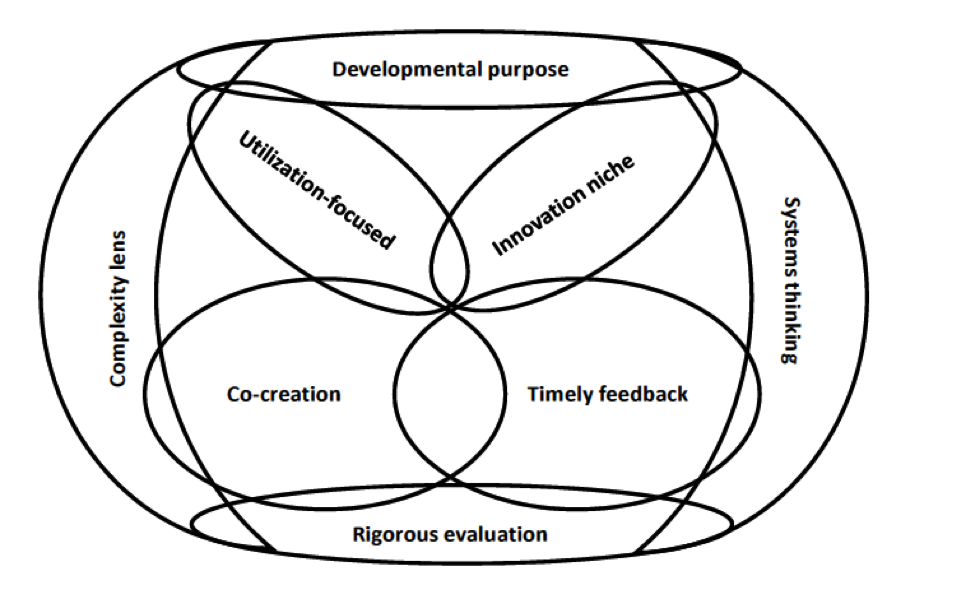Sunday, March 1, 2015
My name is
Michael Quinn Patton and I am an independent evaluation consultant based in Minnesota but working worldwide. In the last few months I have been editing a book on
Developmental Evaluation Exemplars with Kate McKegg and Nan Wehipeihana. (The book will be out in September.) Tomorrow Kate will share what the Developmental Evaluation (DE) cases we’ve reviewed and analyzed reveal about readiness for DE. The following day Nan will share what we’ve learned about developmental evaluator roles and responsibilities. The rest of the week will include reflections from three more developmental evaluators. Today I’m going to introduce the principles of DE that have emerged from this collaborative work with DE practitioners. .
Hot Tip: Understand the specific niche of DE. DE provides
evaluative information and feedback to social innovators, and their funders and supporters, to inform adaptive
development of change initiatives in complex dynamic environments.
Rad Resource: Eight Essential Principles of Developmental Evaluation
- Developmental purpose
- Evaluation rigor
- Utilization focus
- Innovation niche
- Complexity perspective
- Systems thinking
- Co-creation
- Timely feedback
Hot Tip: The principles are inter-related and mutually reinforcing. The developmental purpose (#1) frames and focuses evaluation rigor (#2), just as rigor informs and sharpens understanding of what’s being developed. Being utilization-focused (#3) requires actively engaging with social innovators as primary intended users and staying attuned to the developmental purpose of the evaluation as the priority. The innovation niche of DE (#4) necessitates understanding the situation and what is developed through the lens of complexity (#5) which further requires understanding and applying systems thinking (#6) with timely feedback (#8). Utilization-focused engagement involves collaborative co-creation (#7) of both the innovation and the empirically-based evaluation, making the developmental evaluation part of the intervention.
 Cool Trick:
Cool Trick: Work with social innovators, funders, and others involved in social innovation and DE to determine how the principles apply to a particular developmental evaluation. This increases their relevance based on contextual sensitivity and adaptation, while illuminating the practical implications of applying guiding DE principles to all aspects of the evaluation.
Rad Resources:The American Evaluation Association is celebrating Developmental Evaluation Week. The contributions all this week to aea365 come from evaluators who do developmental evaluation. Do you have questions, concerns, kudos, or content to extend this aea365 contribution? Please add them in the comments section for this post on the aea365 webpage so that we may enrich our community of practice. Would you like to submit an aea365 Tip? Please send a note of interest to aea365@eval.org. aea365 is sponsored by the American Evaluation Association and provides a Tip-a-Day by and for evaluators. 